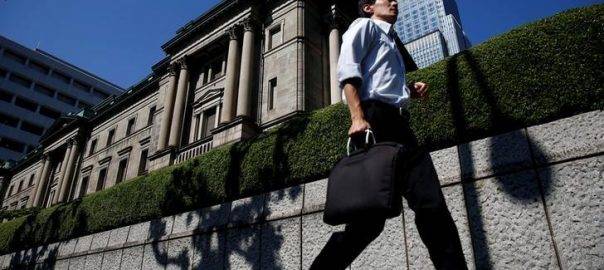BOJ shouldn’t be criticised for missing inflation goal: Japan PM’s aide
Shares

TOKYO: The Bank of Japan should not be overly criticized for failing to achieve its inflation target as its ultra-easy monetary policy has helped the economy and created jobs, an economic adviser to premier Shinzo Abe said on Thursday.
“The reason we need an inflation target is because it is easier to achieve the basic needs” of the population, such as low unemployment, by setting one, Koichi Hamada said.
“It is wrong to over-criticize the monetary authorities for not achieving their inflation target,” Hamada, cabinet adviser and emeritus professor of economics at Yale University, said in a seminar.
The comments by Hamada, considered among architects of the premier’s “Abenomics” stimulus policies, underscore a growing view among analysts and government officials that the BOJ should not be so concerned about meeting its price target quickly.
Sayuri Shirai, a former BOJ board member, told the same seminar that it was “not easy” for Japan to achieve the central bank’s 2 percent inflation target over the next few years.
“It’s very clear monetary policy didn’t have an effective result in generating demand-driven inflation,” she said.
“I don’t think the BOJ needs to abandon its 2 percent target but it needs to take a more flexible approach,” she said, adding that the key to the outlook would be how the central bank steers a smooth exit from its ultra-loose monetary policy.
Japan’s economy expanded at an annualized 2.5 percent in the second quarter as consumer and corporate spending picked up, with steady growth likely to be sustained in coming quarters.
But core consumer prices rose just 0.7 percent in August from a year earlier, well below the BOJ’s target, and wage growth remains slow despite a tightening job market.
The BOJ is expected to largely maintain its price forecasts at a policy meeting next week and blame stagnant inflation on factors like corporate efforts to boost productivity, signalling that it will hold off on expanding stimulus.
The central bank has postponed the time frame for achieving its 2 percent inflation target six times since deploying its massive monetary stimulus in 2013, as its huge money printing failed to nudge up price and wage growth.
